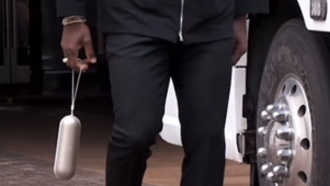A large national study offers a ray of hope for tens of thousands on kidney transplant waiting lists who may never find a compatible donor.
Through a method called desensitization, doctors successfully altered the immune system of patients to enable them to accept kidneys from incompatible donors. Substantially more patients remained alive after eight years compared to those who stayed on waiting lists or received their kidney from a dead donor.
“[This] has the potential to save many lives,” reports Dr. Jeffrey Berns, kidney expert at the University of Pennsylvania and president of the National Kidney Foundation.
Clint Smith, a 56-year-old New Orleans lawyer, would no longer spend the rest of his life on kidney dialysis after undergoing the procedure, which he believed changed his life.
Desensitization filters the antibodies out of the patient’s blood, and then offers him an infusion of other antibodies for protective action, while the immune system is regenerating its own antibodies. It is unclear how, but the reproduced antibodies prove less likely to attack the transplanted organ.
If the regenerated antibodies remain a concern, drugs are provided to destroy any white blood cell that would prompt the antibodies to attack the kidney.
"We used to say if you had a compatible donor, you could do a transplant. Now you can say, if you have an incompatible donor, we still can make that transplant happen," says Dr. Dorry Segev of John Hopkins University and study's senior author.
The eight-year survival rates were nearly 77 percent among 1,025 patients who received an incompatible kidney from a live donor, and 63 percent for more than 5,100 matched patients remaining on a waiting list or received a new organ from a deceased donor. It was 44 percent, on the other hand, for more than 5,100 who stayed on the waiting list without getting a kidney.
The research was conducted at 22 medical centers, projected to help about 32,000 individuals in the United States who have anti-HLA antibodies, or those whose immune systems were technically unfit to the donated kidney.
Kidney exchange has risen in recent years as a viable option for those with incompatible living donors, where they could swap donors with someone else. The exchanges have often led to compatible organ pairs. Still, the patients’ antibodies would get in the way, rejecting almost every donated organ.
“[D]esensitization may be the only realistic option for receiving a transplant [in this case],” says Dr. Krista Lentine of the Saint Louis Center for Abdominal Transplantation, who was not involved in the research.
The procedure is expensive, costing up to $30,000 and using drugs that are not approved for the said purpose. The transplant could cost $100,000. Still, specialists argued that desensitization could be cheaper in the long term compared to dialysis, where one could incur $70,000 a year in expenses for the rest of his life.
The findings were published in the New England Journal of Medicine.
Photo: Tareq Salahuddin | Flickr








